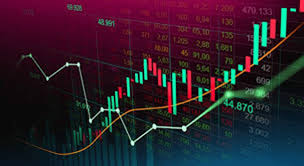Forex Trading vs Stock Trading Unveiling the Differences

Forex Trading vs Stock Trading: An In-depth Comparison
When it comes to trading and investing, two of the most popular markets are Forex trading and stock trading. Each of these markets has its own unique characteristics, benefits, and drawbacks. Understanding the differences between them can greatly enhance your trading strategy and help you make informed decisions. In this article, we will explore the fundamental differences and similarities between Forex and stock trading, and how to choose the right one for your trading ambitions. If you're looking for the best resources and platforms to get started, check out forex trading vs stock trading Top Trading Platforms.
What is Forex Trading?
Forex or foreign exchange trading is the process of buying and selling currencies in the global market. This market is the largest and most liquid financial market in the world, with a daily trading volume exceeding $6 trillion. Forex trading allows participants to exchange one currency for another, usually in pairs (e.g., EUR/USD, GBP/JPY). The primary aim of forex trading is to profit from fluctuations in exchange rates.
Key Features of Forex Trading:
- High Liquidity: The Forex market is open 24 hours a day, providing high liquidity and opportunities for traders to enter and exit positions with minimal price slippage.
- Leverage: Forex trading typically offers high leverage ratios, enabling traders to control large positions with a relatively small amount of capital.
- Variety of Trading Strategies: Forex traders can employ various strategies such as scalping, day trading, and swing trading to take advantage of market movements.
- Global Market: The Forex market operates globally, allowing traders to engage with different currencies and economies.
What is Stock Trading?
Stock trading involves buying and selling shares of publicly listed companies. When you purchase a stock, you are essentially buying a small piece of the company. Stock trading can take place on various exchanges, with the New York Stock Exchange (NYSE) and Nasdaq being among the most prominent. The goal of stock trading is to capitalize on price movements over time.

Key Features of Stock Trading:
- Ownership: When you buy stocks, you become a partial owner of the company and may receive dividends based on the company’s performance.
- Company Performance: Stock prices are influenced by company performance, earnings reports, and broader market trends.
- Long-term Investment: Investors often buy stocks with a long-term view, aiming for capital appreciation over years.
- Market Hours: Stock markets typically operate during specific hours, unlike the 24/5 nature of Forex trading.
Comparative Analysis: Forex vs. Stock Trading
1. Market Hours
The Forex market operates around the clock from Sunday evening to Friday evening, allowing traders to access their accounts at any time. In contrast, stock markets have set trading hours. While this can be an advantage for Forex traders, stock traders may benefit from more concentrated trading hours.
2. Leverage
Leverage is a significant aspect of both Forex and stock trading. In Forex trading, leverage can be much higher (up to 500:1 or even more), enabling traders to control larger amounts of currency with a smaller capital investment. However, while this increases potential profits, it also comes with heightened risk. In stock trading, leverage is typically lower, around 2:1 for many investors, providing a more conservative approach.
3. Trading Costs

Forex trading generally incurs lower transaction costs compared to stock trading, mainly due to tighter spreads and lower commissions. However, stock transactions may be subject to additional fees, taxes, and commissions that can add up.
4. Risk and Volatility
Both markets carry risks, but they differ in how they experience volatility. Forex markets can exhibit rapid price swings due to geopolitical events, economic reports, and central bank actions. In contrast, stock prices tend to be influenced more by company fundamentals and market sentiment, which can result in different types of volatility.
5. Required Knowledge and Skills
Forex trading requires a solid understanding of macroeconomic factors, as currency values are influenced by interest rates, geopolitical events, and overall economic health of countries. Stock trading, while also requiring research and analysis, often demands a deeper understanding of individual companies, their financial health, and the sectors in which they operate.
Choosing the Right Market for You
Deciding whether to trade Forex or stocks largely depends on your personal financial goals, risk tolerance, and lifestyle. If you prefer a fast-paced environment where you can trade at any time, Forex may be the better choice. On the other hand, if you are looking for long-term investments in specific companies and enjoy analyzing business performance, stock trading could suit you better.
Conclusion
In conclusion, both Forex trading and stock trading offer unique advantages and challenges. Understanding these differences is crucial for any trader or investor looking to navigate these markets effectively. By considering your financial goals, risk tolerance, and trading style, you can make a well-informed decision on which market aligns better with your trading ambitions. Whether you choose to engage in Forex trading or stock trading, the key remains to stay informed, continually educate yourself, and develop a robust trading strategy.
- ! Без рубрики
- 123
- 1bet5
- 1w
- 1Win AZ Casino
- 1win casino spanish
- 1win fr
- 1win Turkiye
- 1winRussia
- 1x-bet.downloa
- 1xbet
- 1xbet apk
- 1xbet Bangladesh
- 1xbet Casino AZ
- 1xbet casino BD
- 1xbet india
- 1xbet Korea
- 1xbet KR
- 1xbet malaysia
- 1xbet Morocco
- 1xbet pt
- 1xbet RU
- 1xbet russian
- 1xbet russian1
- 1xbet-uzbek.org
- 1xbet1
- 1xbet2
- 1xbet3
- 1xbet32
- 1xbet3231025
- 1xbet4
- 1xbet51
- 1xbet52
- 1xbet61
- 1xbet62
- 1xbet82
- 22bet
- 22Bet BD
- 22bet IT
- 22betde.de
- 888starz bd
- a16z generative ai
- a16z generative ai 1
- Aanbiedingen
- aarhusaffairs.dk
- adobe generative ai 1
- adobe generative ai 2
- ai chat bot python
- ambridgeevents.com
- AU T1_19264 (3)
- austria
- Aviator
- aviator brazil
- aviator casino DE
- aviator casino fr
- aviator IN
- aviator ke
- aviator mz
- aviator ng
- b1bet BR
- bbrbet colombia
- bbrbet mx
- bcg4
- bcgame1
- bcgame2
- bcgame3
- beach5.ch_betonred
- bet1
- bet2
- betting2
- betwinner1
- betwinner2
- bizzo casino
- blog
- book of ra it
- Brand
- brucebetdeutsch.com
- Canada Casino
- casibom tr
- casino
- casino en ligne argent reel
- casino en ligne fr
- casino svensk licens
- casino utan svensk licens
- casino zonder crucks netherlands
- casino-glory india
- casino1
- casino101
- casino102
- casino103
- casino2
- casino201
- casino202
- casino203
- casino241
- casino242
- casino25
- casino27
- casino3
- casino4
- casino5
- casino6
- casino7
- casinos1
- chat bot names 4
- ciroblazevic.hr
- cityoflondonmile3
- cityoflondonmile4
- comedychristmas.ch
- crazy time
- csdino
- Cursussen
- done
- DONE 240679 Kli 09.10
- DONE 241993 16.10
- DONE 4447 Focus 13.10
- done 7 slots
- drivein.hr
- dxgamestudio.com
- extradition
- focus basari
- fortune tiger brazil
- freevoice.hr
- fysiotek.gr
- fzo.hr
- Gama Casino
- Game
- gameaviatorofficial.com
- gate-of-olympus.gr
- Gegmany Casino3
- Gegmany Casino5
- how does generative ai work
- icestupa10
- icestupa13
- icestupa2
- icestupa3
- icestupa4
- icestupa5
- icestupa6
- icestupa9
- IGAMING
- imageloop.ru 20
- Indonesia Casino
- italiandocscreening
- ivibetcasino.ch
- jaya91
- kaszino1
- khelo24betoficcial.com
- king johnnie
- lilyedu.uz
- Maribet casino TR
- Maxi reviewe
- mini-review
- Mini-reviews
- mombrand
- mono brand
- mono slot
- Mono-brand
- Monobrand
- monobrend
- monogame
- monoslot
- moon-princess-100.com
- mostbet
- mostbet GR
- mostbet hungary
- mostbet italy
- mostbet norway
- mostbet tr
- Mr Bet casino DE
- mr jack bet brazil
- mx-bbrbet-casino
- my-1xbet.com
- news
- Nieuws
- omitapparel
- ozwin au casino
- Pacifica_bl95un3ifza
- palazzocornermocenigo
- PBN
- pelican casino PL
- Pin UP
- Pin Up Brazil
- Pin UP Online Casino
- Pin Up Peru
- pin-up-casino-giris.net
- pinco
- Pinco türkiye
- PinUp
- Pinup casino
- pınco
- plinko
- plinko in
- plinko UK
- plinko_pl
- pocketoption1
- pocketoption2
- pocketoption3
- Post
- primexbt1
- primexbt2
- primexbt3
- Qizilbilet
- Ramenbet
- Ramenbet
- Review
- Reviewe
- reviewer
- rise-of-olympus-100.com.gr
- sansalvatrail.ch
- schweizbahigo.ch
- Shows
- Slot
- Slots
- Slots`
- space-interiors
- sudstvo.mk
- sugar rush
- sugar-rush-1000.com.gr
- sweet bonanza
- T3_19264_a
- Thailand Casino
- thereoncewasacurl.com
- Trading3
- trading5
- traiding1
- traiding2
- traiding4
- UK Casino
- ulola.hr
- Uncategorized
- vavada1
- verde casino poland
- verde casino romania
- Vovan Casino
- vulkan vegas germany
- weight loss pharmacy
- Комета Казино
- Макси-обзорник
- нуы
- сателлиты
- сеточный домен
